blog
Book Review: Border: a journey along the edges of Russia by Maria Gruzdeva
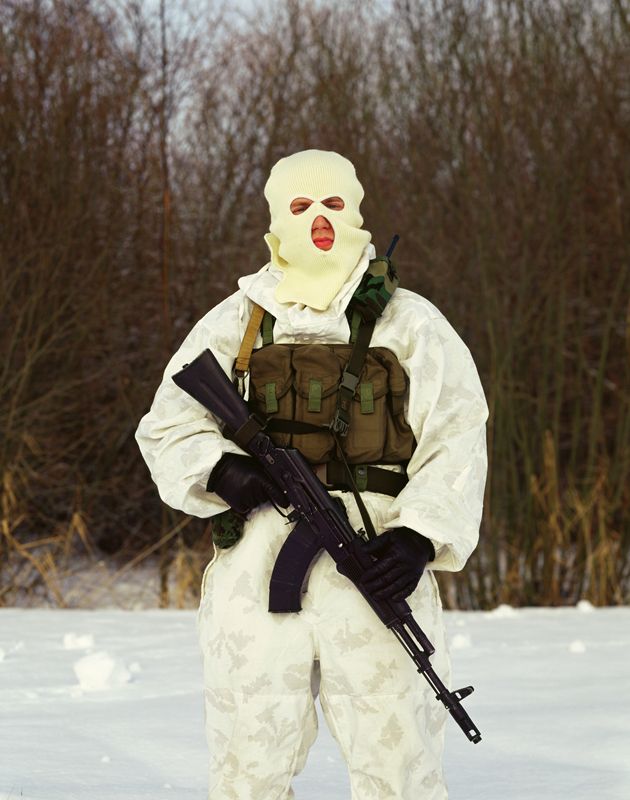
Man in Mask, combatant of the Alpha group, an elite Russian counter-terrorism unit. Maria Gruzdeva/Schilt Publishing
Until most recently, my interest in Russia was rather limited. There are the writers that I adore – Dostoyevsky, Tolstoi, Chekhov and Gogol – and there are thrillers like Gorky Park that I’m fond of. And then, on short trips to Latvia and Estonia, countries with a high percentage of Russians, I became somewhat curious in things Russian and increasingly suspicious of the propaganda wars that dominate the mass media.
However, what primarily attracted me to Maria Gruzdeva’s Border is my fascination for borders, these highly artificial constructs that we are made to believe in and to generally respect.
The border that Russian-born (1989) photographer Maria Gruzdeva, based in London, journeyed along is 60,000 kilometers, I learn from Dina Gusejnova’s foreword, “a rough figure which includes the maritime borders; just over 20’000 if you count the land border only.”
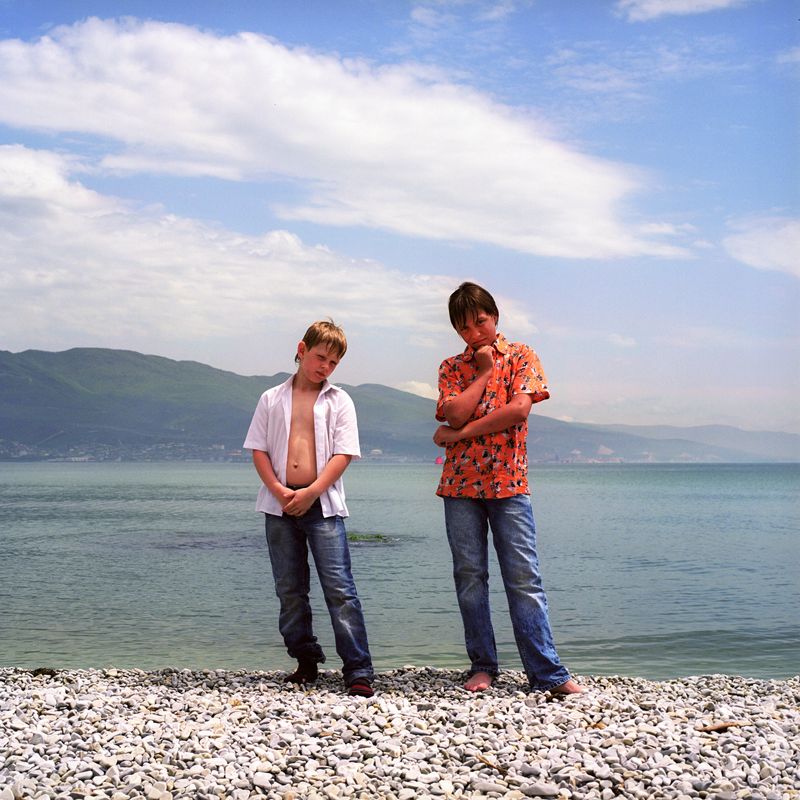
Artem and Ilya, Novorossiysk embankment. Maria Gruzdeva/Schilt Publishing
How does one photograph such a border? Or differently put: How does one photograph a concept? By going out of the house and looking for its physical manifestations: a barbed wire fence, an armed border patrol, a flag, coast guards etc. etc. Maria Gruzdeva also chose to photograph landscapes, government buildings, officials, landing piers, coastlines, forests, crosses, playing children … In fact, when you know that she is photographing the Russian border you will automatically see the Russian border, almost regardless of what you are shown. It is the information that we bring to the picture that defines how we see it.
Maria’s journey started in Abkhazia. “Once you cross the border you immediately find yourself in another country. The Abkhazians have their own language and their own alphabet. Signs and street names tend to be trilingual (Abkhaz-Russian-Georgian).”
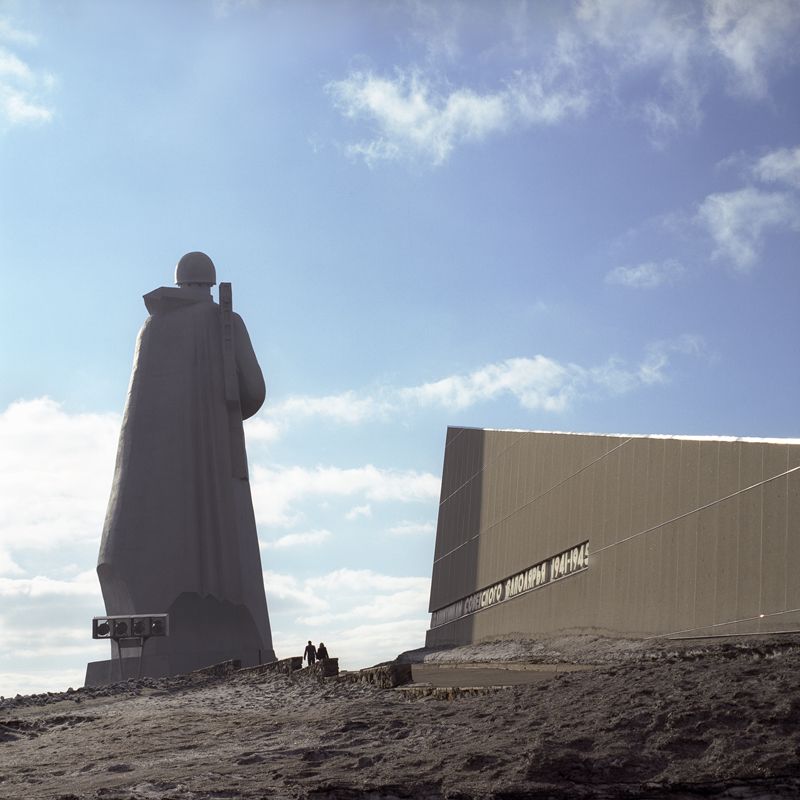
Monument to the Defenders of the Soviet Arctic during World War II (known as the Great Patriotic War in Russia), dubbed Alyosha by locals, is considered to be the patron of Murmansk. Maria Gruzdeva/Schilt Publishing
At the heliport of Kaliningrad where the alpha fighters were training – the Alpha Group is an elite Russian special forces counter-terrorism unit – she learned that they were not only young but probably younger than she was. “I was struck by the contrast between their characters and the nature of their duties. It was hard to believe that they could be engaged in endeavours as serious as hostage negotiations, human and drug trafficking control, and so forth.”
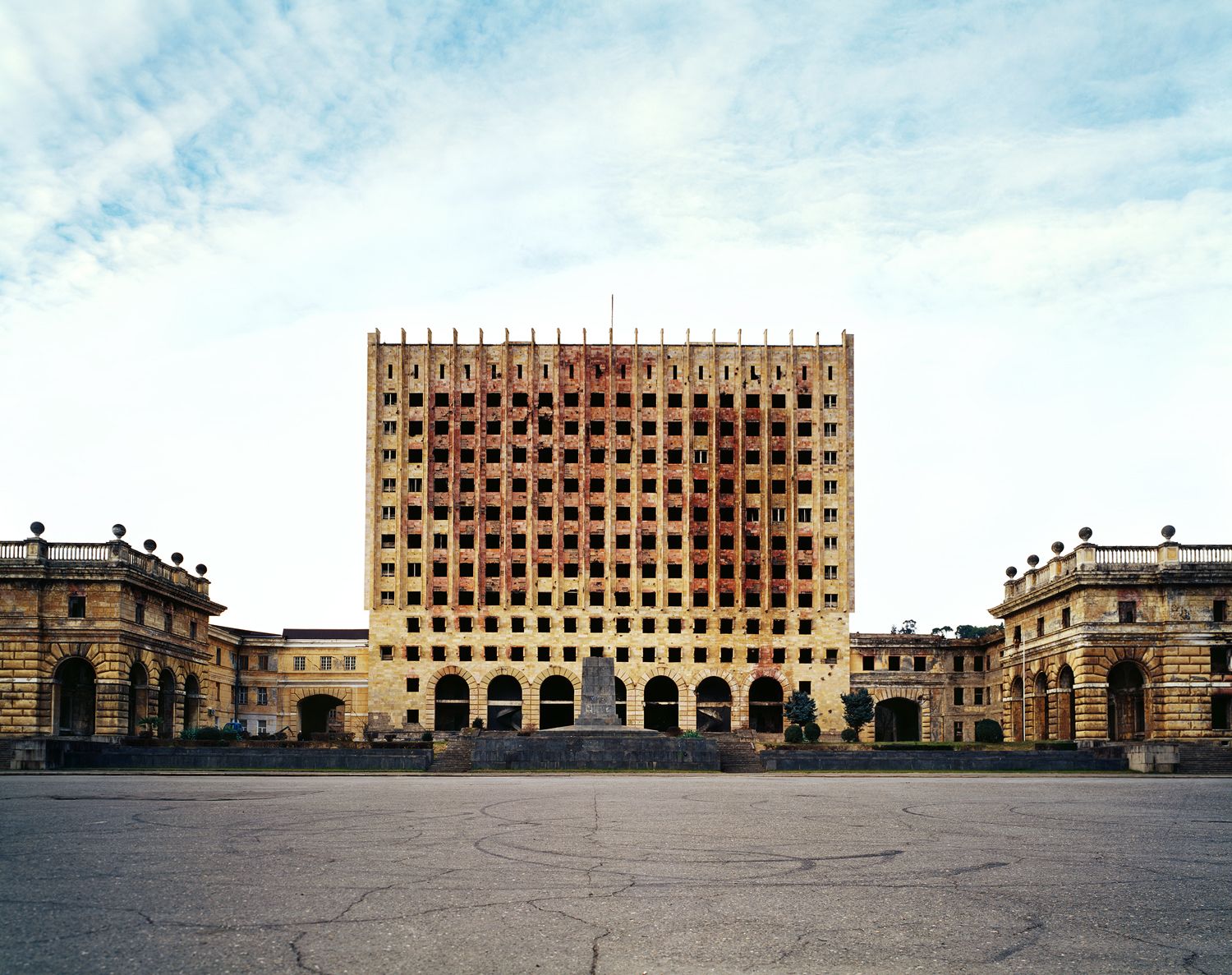
Building of the Council of Ministers of Abkhazia, Sukhumi, Abkhazia. Maria Gruzdeva/Schilt Publishing
The texts that accompany the photographs are informative and often fun to read. “The Germans planted trees along roads for two reasons: the roadway edges would be bolstered by the roots, while the canopies would make any passing military equipment invisible from the air. The trees have been dubbed ‘the last soldiers of the Wehrmacht’. Russians career down these roads and crash into them.”
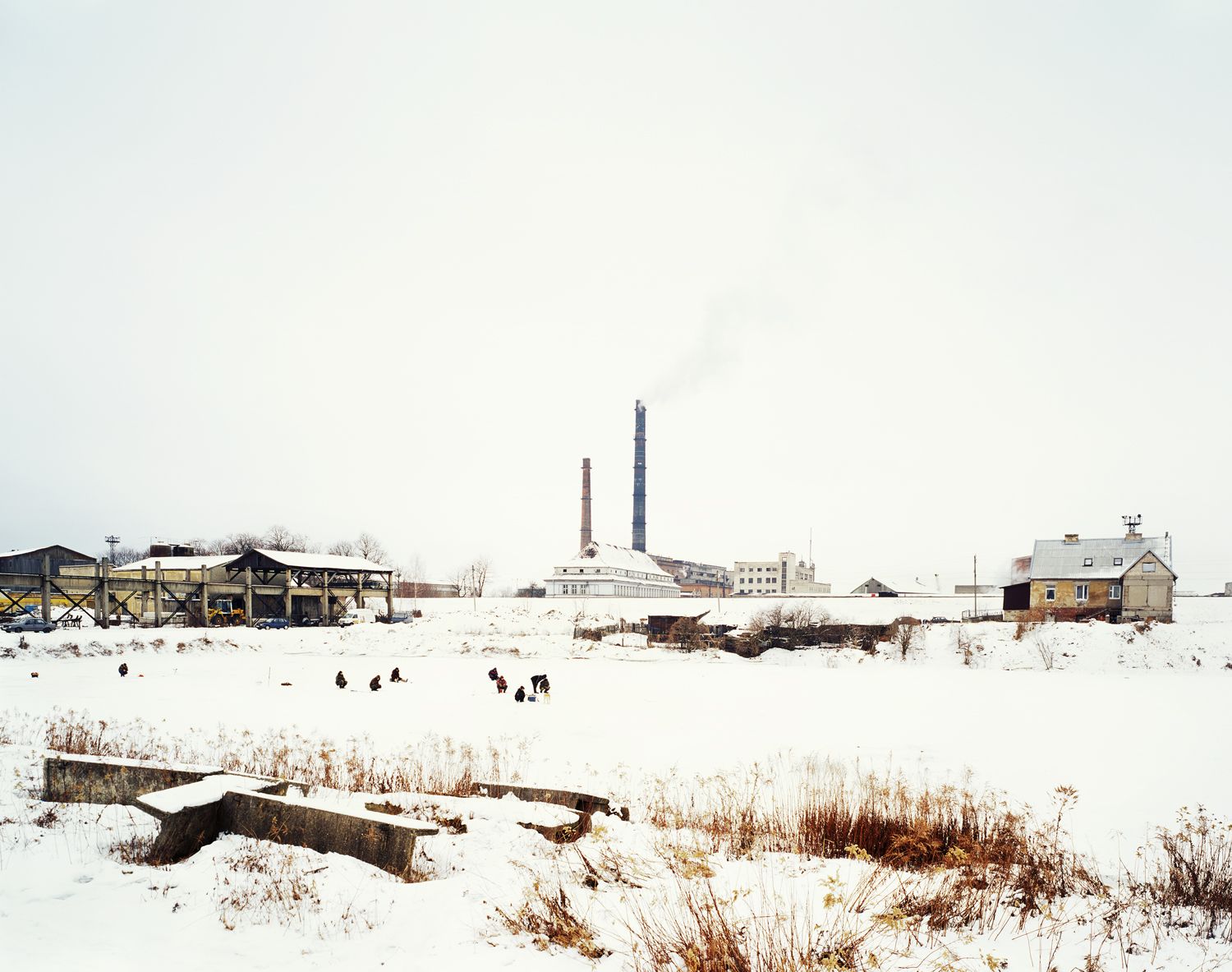
Cityscape, Sovetsk, Kaliningrad Oblast. Maria Gruzdeva/Schilt Publishing
Not all the places visited were easy to reach. The flight from Moscow to Svalbard, for instance, an archipelago in the North Arctic Ocean under Norwegian jurisdiction (“a significant role in the economic and administrative life of the archipelago is played by Russia”), took four-and-a-half hours. One of the most hilarious endeavours, however, I thought the trip to the Kuril islands. Flights were suspended because of adverse weather conditions and so they decided to sail on “a heavy-duty icebreaker designed to transport cargo and up to 150 passengers.” So far so good. The only problem was that nobody was able to say which route it would sail. “As it turned out, the decision was with the captain, and depended on the volume of cargo that needs to be shipped to each island. To avoid wasting fuel, it’s preferable to offload the lion’s share of the cargo early on in the voyage. The snag, though, is that the captain makes the decision only after the ship has set sail – so once you’re on, you’re on for good.”
“Border” shows me a Russia that my heart goes out to. I love this book!
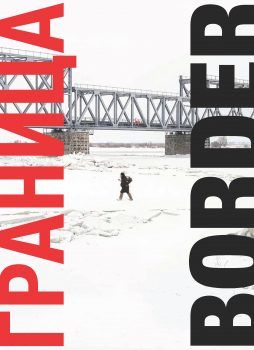
Maria Gruzdeva/Schilt Publishing
BORDER
by Maria Gruzdeva
Published by Schilt Publishing, Amsterdam 2016
Available for £27.50/€35/$40 in stores and online here: www.schiltpublishing.com/publishing/authors/maria-gruzdeva/ or www.mariagruzdeva.com
Location: Online Type: Book Review
Events by Location
Post Categories
Tags
- Abstract
- Alternative process
- Architecture
- Artist Talk
- artistic residency
- Biennial
- Black and White
- Book Fair
- Car culture
- Charity
- Childhood
- Children
- Cities
- Collaboration
- Community
- Cyanotype
- Documentary
- Environment
- Event
- Exhibition
- Faith
- Family
- Fashion
- Festival
- Film Review
- Food
- Friendship
- FStop20th
- Gender
- Gun Culture
- Hom
- home
- journal
- Landscapes
- Lecture
- Love
- Masculinity
- Mental Health
- Museums
- Music
- Nature
- Night
- nuclear
- p
- photographic residency
- Photomontage
- Plants
- Podcast
- Portraits
- Prairies
- Religion
- River
- Still Life
- Street Photography
- Tourism
- UFO
- Water
- Zine

Leave a Reply